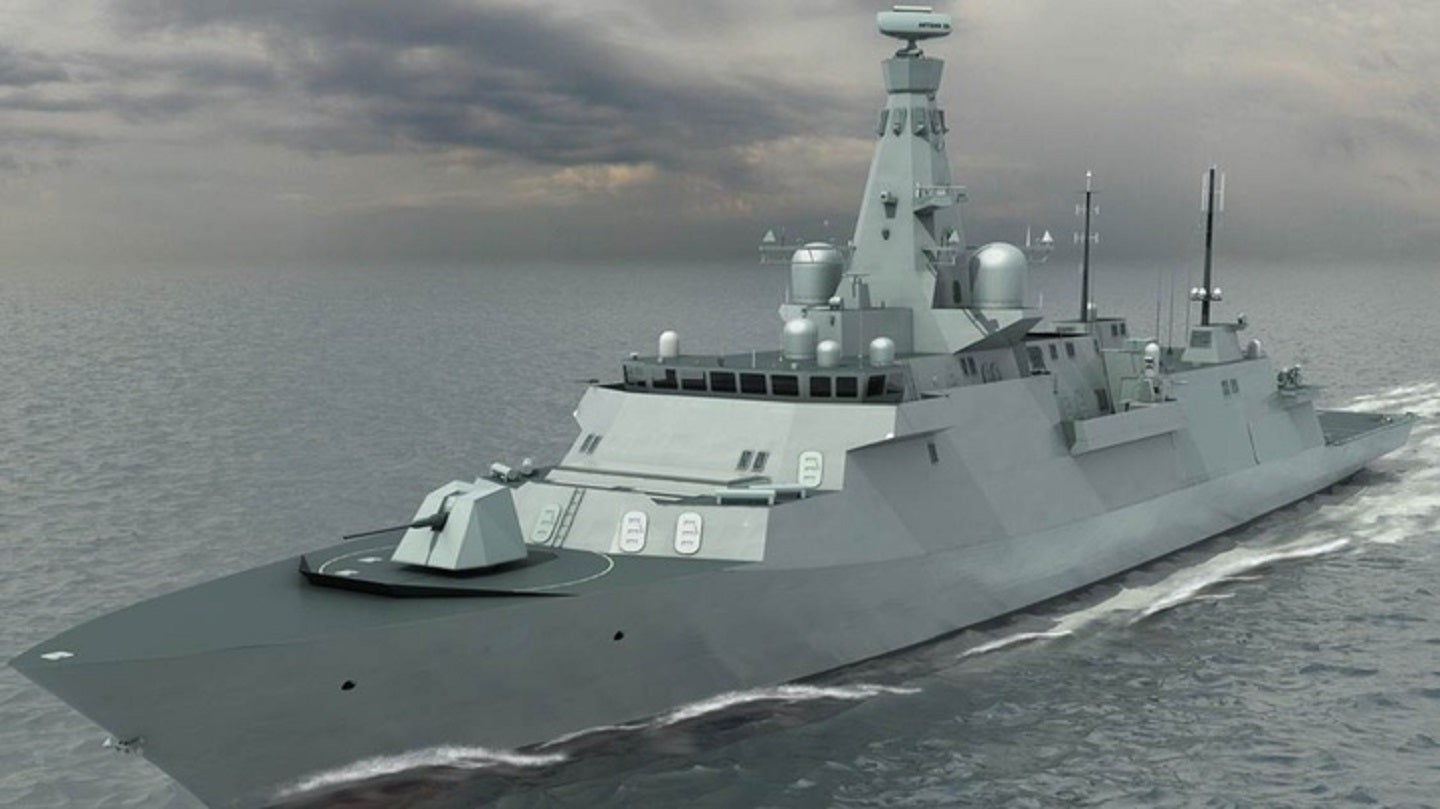
A UK Government tender notice for the seaborne transportation of fabricated steelwork for the future Type 26 frigate has highlighted the distribution of shipyard labour necessary to complete the delivery of the warships to the UK Royal Navy.
Published by the UK Government on 19 May, the notice revealed the intention to award a £500,000 ($635,000) deal for the seaborne transportation of units and blocks associated with the Type 26 programme. The start date delivery contract was scheduled to begin in October 2023, concluding in May 2024.
The tender description stated that UK defence prime BAE Systems was outsourcing some steelwork fabrication to build yards across the country, ranging from three single units to a consolidated block. Due to the size and weight of the manufactured sections, transport to the BAE Systems site in Govan would only be possible by sea.
The three single units were to be transported to a quayside where they will then be required to be loaded out to a suitable vessel prior to onwards shipping to the Govan site.
In addition, the tender notice said that the consolidated block will be built in a number of build cradles and require transportation to the quayside via self-propelled modular transporters. The block would be required to be loaded in at Govan and transported to its final location within the yard.
Type 26 build progress
The Type 26 programme will deliver a total of eight anti-submarine warfare frigates to the UK Royal Navy, which will replace, in part, the ageing Type 23 fleet. Expected to displace around 7,000 tonnes at full load, the Type 26 will be comparable in size to the Type 45 air defence destroyers currently in service.
The industrial effort to manufacture the vessels, with BAE Systems acting as prime, incorporates defence and maritime companies from across the UK. In November 2022 the UK Government awarded a £4.2bn contract for the manufacture and delivery of five Type 26 frigates, which followed an earlier £3.7bn deal in 2017 for the build of the first three ships in class.
To this end, BAE Systems has outsourced steelwork fabrication for a limited number of units to support delivery of the Type 26 frigate for the UK Royal Navy.
According to a BAE Systems spokesperson UK shipyards A&P Group and Ferguson Marine Engineering have been contracted to supply a total of seven units.
“This is typical for a programme of this scale and offers an opportunity for UK companies to play their part on this national endeavour,” the spokesperson told Naval Technology.
In addition, the seaborne transportation tender would provide BAE Systems “competitive pricing detail” for “any future shipping transportation contracts” required to support the Type 26 frigate programme.
Sites such as A&P Tyne and Cammell Laird on the Wirral Peninsula have contributed to UK shipbuilding over the past decade, including the manufacture of 23 large upper blocks for the Royal Navy’s Queen Elizabeth-class carriers, and lower block units currently in production on the Tyne and the Wirral for the Type 26 programme.
In May Ferguson Marine Engineering stated that it had begun manufacture at its Port Glasgow site of the first of three units to be built for HMS Belfast, the third Type 26 frigate currently being constructed.
The phase of work involves fabricating three steel units which, when completed later in 2023, will be transported to BAE Systems’ Govan site ready for assembly as part of HMS Belfast.
The steel cut ceremony for the fourth City-class frigate, HMS Birmingham, took place in April. The first-in-class HMS Glasgow is currently docked at Scotstoun where outfitting continues ahead of delivery “in the mid-2020s”, while construction of HMS Cardiff, HMS Belfast and HMS Birmingham is in progress.




